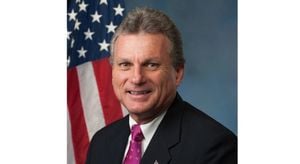FORT BRAGG, N.C. — U.S. Defense Secretary Pete Hegseth announced on Monday, during his first official actions, the renaming of Fort Liberty back to its original name, Fort Bragg. The change reverses the renaming made under the Biden administration, which had aimed to eliminate associations with Confederate leaders from U.S. military installations.
Established in 1918, the base located outside Fayetteville, North Carolina, was originally named after Confederate General Braxton Bragg. He was not only known for his military service but also for being a slaveowner and notorious for his ineffectiveness, as historians believe he contributed to the Confederacy’s downfall during the Civil War.
The recent renaming was motivated by Hegseth’s desire to honor Pfc. Roland L. Bragg, who distinguished himself during World War II. The rebranding, according to Pentagon spokesman John Ullyot, recognizes “those who have demonstrated extraordinary service and sacrifice for the nation.” Bragg earned the Silver Star and Purple Heart at the Battle of the Bulge, showcasing exceptional courage during combat.
“That’s right. Bragg is back!” Hegseth declared triumphantly when he signed the order to restore the name, as seen on video released by the Pentagon. Despite the formal name change, it’s important to note Fort Bragg had still been colloquially referred to by its original name, as the new name never truly gained traction.
The name change is also seen as fulfilling a political promise made by former President Donald Trump during his campaign. Trump, who once pledged to restore Fort Bragg's name during stops in North Carolina, faced significant criticism when he resisted calls for renaming military bases associated with Confederate officers following the Black Lives Matter protests sparked by the killing of George Floyd.
Under the Trump administration, the military institutionalized decisions against renaming bases like Fort Bragg, arguing they were part of American heritage and military tradition. This stance shifted under President Biden, leading to the 2023 renaming to Fort Liberty, which aimed to reflect the nation’s changing perspectives on race and history.
Hegseth sidestepped the 2021 legislation barring the naming of military bases after individuals who served the Confederacy. By naming it after Pfc. Roland L. Bragg instead of General Braxton Bragg, Hegseth honors military veterans broadly, distancing the new name from its Confederate origin.
Analysts and historians point out the vacuum left by the previous naming conventions as opportunities to acknowledge service members responsible for significant contributions to American military history rather than those who fought against it. They believe this move preserves the integrity of the installation's longstanding reputation.
Roland L. Bragg, who served with distinction during his military service, hailed from Sabbattus, Maine. After his military career, he returned to Maine, where he worked as a building mover and operated sawmills. He passed away from cancer at the age of 75. The renaming of Fort Liberty to honor him reflects the Pentagon's commitment to recognizing heroes who have demonstrated courage and service, rather than figures from the Confederacy.
The renaming of Fort Bragg and similar installations continues to evoke strong sentiments, reflecting the deep historical wounds associated with the Civil War and its legacy. Underlying these discussions are broader currents concerning race and representation within military institutions.
Historians have argued both for and against the legacy of figures such as General Braxton Bragg, noting the military defeats he faced and how his lack of success should mitigate the reverence afforded to his name.
“Fort Bragg has become part of American military history, training soldiers who honorably served our country,” stated one historian, emphasizing the need to reevaluate who we venerate if we are to pursue equality and justice for all Americans. This perspective continues to gain traction as military namesakes are reconsidered.
While critics of the Trump administration noted how designated military responses shaped national idiosyncrasies about race, advocates of renaming efforts highlighted the importance of rebranding spaces associated with America's fraught past.
Hegseth's decision is not only pivotal for Fort Bragg but also for how the Pentagon approaches military culture, heritage, and naming conventions moving forward. With this shift, the U.S. military appears to be recalibrated, seeking to honor not only service members but also the ideals of unity and progress.
Historically situated military bases have long been entwined with local identities, and any shifts can trigger reconfiguration within communities. Fort Bragg is no exception as it continues adapting to the changing narratives surrounding it.
While some supporters welcome the restoration of the original name with Pfc. Roland L. Bragg as its new namesake, others remind us of the broader societal conversations tied to race and history. The consequence of this renaming could fundamentally reshape the connotations of not just Fort Bragg but potentially other military bases carrying names of contentious historical figures.
Hegseth’s announcement opens up discussions about not only the past but also what role the military and its bases will play as America continues to grapple with defining moments from its history.



